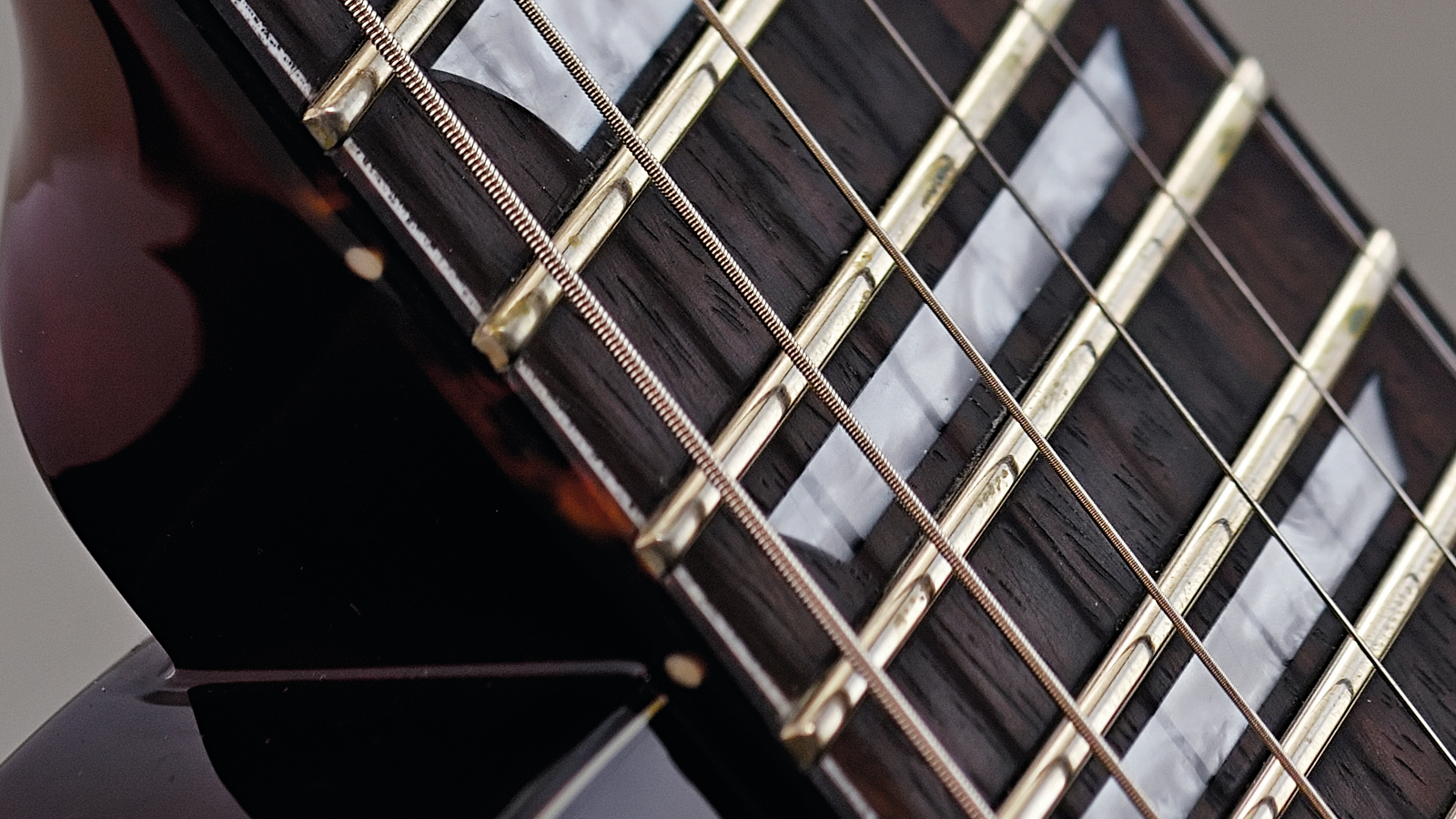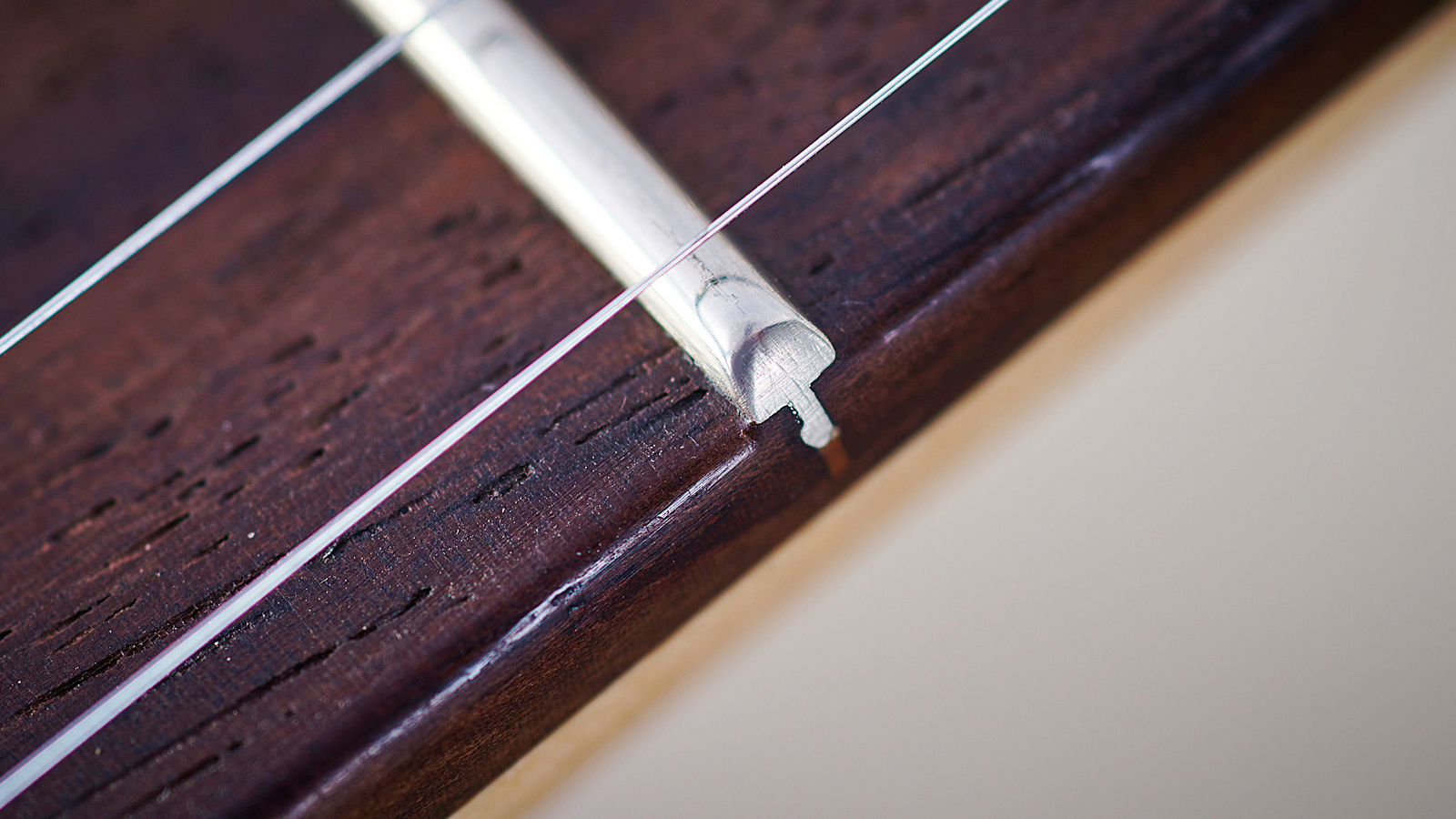Five Things You Should Know About Frets
From shape, feel and tone to material, condition and replacement – here are the basics of guitar frets

Have you ever given much thought to your frets?
Frets are made in a range sizes, all of which can have a big impact on not only how your guitar plays but also how it sounds.
Here are five things you should know about frets…
1. Their shape affects playing feel
From wide and low to narrow and high – and all possible variables – each fret yields a different “touch," and in turn, inspires and encourages a different form of playing.
Wider frets (jumbo or medium-jumbo) are often preferred by heavy benders, while narrow frets are often the choice of guitarists looking for a sharp, precise feel, but there can be plenty of compromise in between.
2. Their shape also affects tone
Many players are convinced that fatter fret wire equates with fatter tone, and there could be some logic here, considering that more metal in any fixed component usually means a greater vibrational coupling between strings and guitar.
Wider frets also present somewhat blurrier, “thicker," less distinct noting than narrow frets, which can yield a more precise note and more shimmering harmonics.
All the latest guitar news, interviews, lessons, reviews, deals and more, direct to your inbox!
3. Different fret materials also sound and feel different
Fret wire is commonly made from only two different materials: a “nickel” alloy, which actually contains approximately 18 per cent nickel-silver (also called “German silver,” itself a silver-free alloy of nickel and copper), and the less-traditional stainless steel.
The former is far more common, although the latter is easily available. Think of nickel frets as warm, round and juicy, while stainless-steel frets are clear and precise, in relative terms.

4. Fret condition is a key factor in any guitar’s performance
Frets that are dinged, rough and abrasive will feel rough and scratchy under the fingertips, and will bite against the strings when you’re bending.
Frets whose “crowns” – the top edge that meets the fretted string – have been worn down from heavy playing will impede your tone and your intonation by providing a less precise end point to determine the note.
5. Frets are a consumable, and when they’re consumed, they’ve got to be replaced
When the frets are worn down past the point of no return it’s time to get them replaced.
For guitars that are anything less than ultra-collectible, don’t be precious about your frets: if they’re heavily worn, get them replaced by a professional.
Done right, the job will breath new life into any instrument.
Guitar Player is the world’s most comprehensive, trusted and insightful guitar publication for passionate guitarists and active musicians of all ages. Guitar Player magazine is published 13 times a year in print and digital formats. The magazine was established in 1967 and is the world's oldest guitar magazine. When "Guitar Player Staff" is credited as the author, it's usually because more than one author on the team has created the story.
